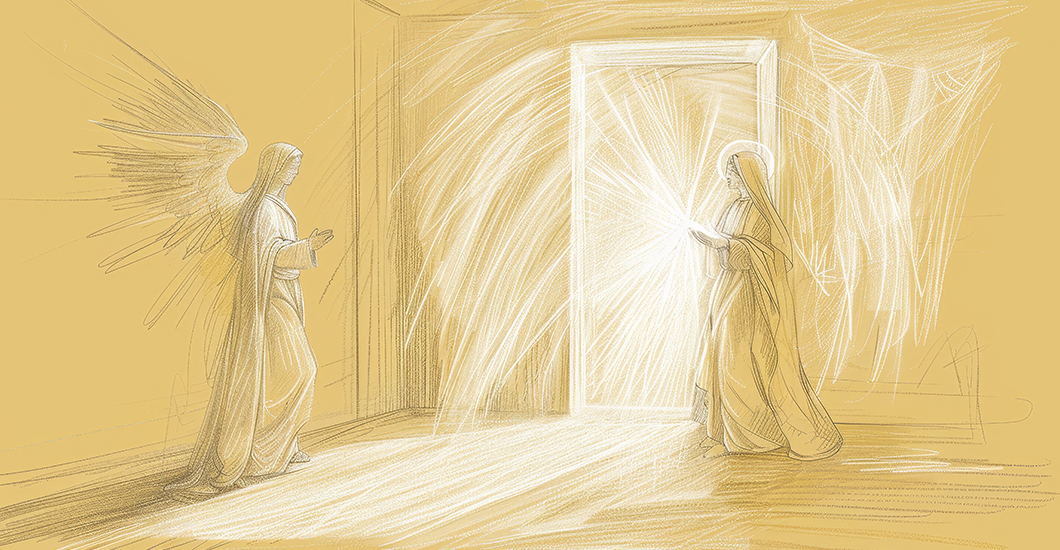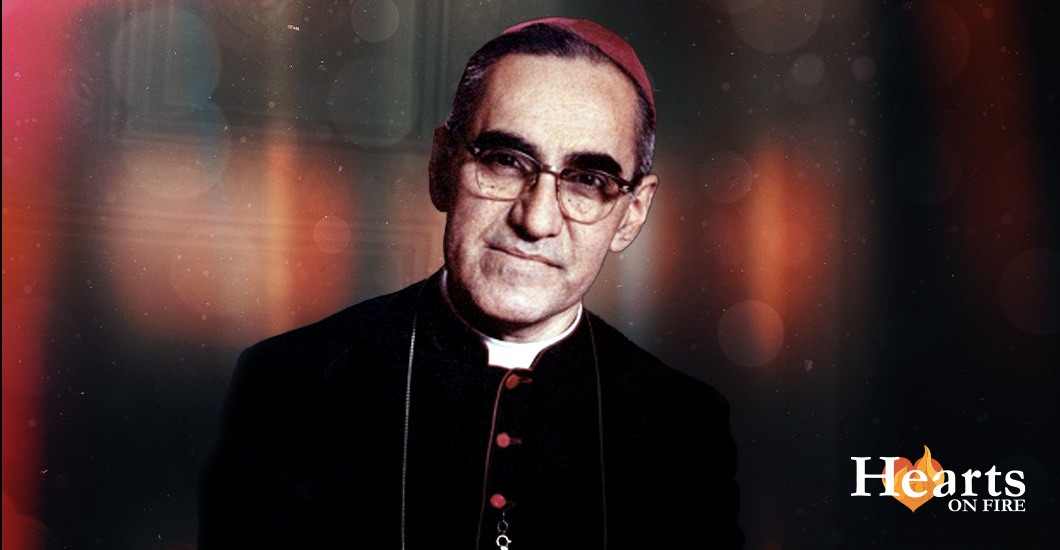Trending Articles
Peace On Earth
Why would the Mighty God become a wailing baby in a place that smells of dung?
One of the stranger aspects of the Annunciation that precedes the Birth of Jesus is how the Archangel Gabriel addresses Mary as “Greetings, favored one! The Lord is with you.” (Luke 1:28) What will ensue is that she will be a teen mother, pregnant before her actual marriage to Joseph, and she will be destined to give birth in a cave or stable amongst barn animals. She might be forgiven if she suspected that Gabriel was engaging in some angelic sarcasm. Then fast-forward thirty-three years when she will be at the foot of the Cross and will watch her Son die an excruciating death among thieves before a jeering crowd. How is all of that being ‘favored?’
A Radical Statement
The whole Christmas story is full of enigma and violates expectations. To begin with, the Creator of the entire cosmos, with its billions of galaxies, who is absolutely self-sufficient and doesn’t need anything from anyone, chooses to become a creature, a human being. The Alpha and the Omega is presented to us as a baby, delivered with all the messiness of childbirth without an attendant doctor or nurses, at a place smelling of dung. As Bishop Barron once described the Incarnation: “There is a Catholic joke here: you either get it or you don’t.” As we stand before this scene, if God can come here amidst utter deprivation and straw, He can come anywhere. He can come into the messiness of my life. If God came there at that stable in Bethlehem, He has come everywhere; there is no place or time that is God-forsaken.
If we pull back from the scene, an odd perspective kicks in. The largest figures at that time—Caesar Augustus, Governor Quirinius, King Herod—have gotten smaller; indeed, they have disappeared. The smaller figures—Mary, Joseph, the random shepherds—loom large: Mary is the Queen of Heaven and Joseph is the patron of the Church, the mystical Body of his adopted Son, Jesus. Baby Jesus, the smallest and most helpless of figures, wrapped in protective swaddling clothes, will loom so large that He will blot out the sun and moon and fill the sky with the song: “Glory to God in the highest Heaven, and on earth peace among those whom He favors!” (Luke 2:14)
The Nativity story is rich in theological meaning, but there’s more to it. A radical statement is being made. Jesus is given the name Immanuel, which means ‘God is with us.’ And that means Jesus is God in the flesh: He is much more than a prophet, a teacher, or a healer; He is the human face of God. The second Person of the Trinity has entered into human existence not because He needs something but for our sake—for our salvation. The implication is remarkable. As Saint Augustine reminds us: “If you were the only person on this earth, the Son of God would have done everything, including dying, for your sake.” It means that there are no insignificant or pointless lives. It means that Immanuel is with us every moment of our existence, which entails that the ordinary events and choices I make on an average day can carry eternal significance. Why? Saint Paul reminds us: “We move, live, and have our being” in Christ Jesus (Act 17:28). It means that our sacred story has meaning and purpose—a life that encourages courage and self-giving generosity, just like the Lord we worship in whatever desolate place we find ourselves.
In Life or Death…
The birth of Christ should be the source of hope, and this is not the same thing as optimism, which is more a genetic disposition rather than a foundation of life. Some of us, in contrast, have to deal with a genetic affliction of depression, which can bathe one’s life in darkness. But, even amid this dark cloud, we can find glimpses of purpose, beauty, and glory and this too can serve.
Sometimes, we experience isolation and loneliness brought on by debilitating illnesses such as chronic pain and degenerative disease. God is there, God is with us. In a shattered relationship, betrayal, or a cancer diagnosis, God is with us. He doesn’t abandon us in a hospital or a mental ward. In life or death, Jesus will never leave us or abandon us because He is Immanuel.
Faith in Jesus does not release us from suffering, but it can bring deliverance from fear because we have a container, a Person, who can integrate everything into our lives. The birth of Jesus means that every moment we are blessed to live, even in a difficult and shortened life, can be infused with God’s presence and ennobled by His calling. Our hope comes to fruition on Christmas Day, which shines like the star that guided the Magi and swells like a song chanted by monks and Gospel choirs throughout the centuries, filling churches, cathedrals, basilicas, and revival tents, but that song is most clear in our won hearts: “God is with us!”

Deacon Jim McFadden works at Saint John the Baptist Catholic Church in Folsom, California. He works in the areas of faith formation for adults, baptismal preparation, spiritual counseling and prison ministry.
Latest Articles
Want to be in the loop?
Get the latest updates from Tidings!








